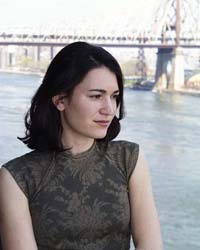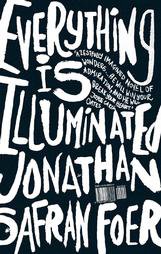Literary Déjà Vu


As a regular reader of The New Yorker, I occasionally find myself experiencing a form of literary déjà vu, as I did this morning when I cracked open Nicole Krauss' novel The History of Love.
The New Yorker runs fiction in nearly every issue and, more often than one would imagine, the fictional piece, which appears to be a short story, turns out to be an excerpt from a current or upcoming novel.
I would protest this practice loudly, but the periodical does not falsely advertise, it labels the section "Fiction," not "Short Story." Nonetheless, when I read a novel, I will find myself thinking that things are very familiar. "But how could this be?" I ask, "I've never read this before!"
It's like having a conversation with someone at a party, and slowly realizing from the conversation that you have met this person before, you've heard the story before, you are familiar with this turn of events.
You are reminded that if the story was unmemorable when it first appeared, the book would suffer. But you remember this story, and you realize that this bodes well for the book.
Allow me to digress: I remember first learning what déjà vu meant. I thank Monty Python. Growing up with my Mom in Hawai'i, we lived for period of time with her boyfriend and his teenage son. The teenager was a huge Python fan, so I was exposed to its brilliance at an early age in the mid-1970's. There is a Python sketch, in their 16th show called "Déjà vu". It is not nearly as funny in print as on screen, but if you're interested, you can read the sketch here.
Back to the book at hand, which we are reading for the Bay Ridge Jewish Center book club. I am enjoying it so far, and I hear good things about it, and that is all I can say at this point. Ms. Krauss is married to another amazing novelist Jonathan Safran Foer, whose Everything is  Illuminated is phenomenal, and which I strongly recommend be read, if you haven't yet, before Hollywood releases its film version. Oh wait, I just noticed it did, back in September. That doesn't bode well for the film, as I have heard little since then. Let's see...Roger Ebert liked it.
Illuminated is phenomenal, and which I strongly recommend be read, if you haven't yet, before Hollywood releases its film version. Oh wait, I just noticed it did, back in September. That doesn't bode well for the film, as I have heard little since then. Let's see...Roger Ebert liked it.
Yet it only made, as of the end of November, $1.7 million, after 11 weeks. Doesn't appear that Warner Brothers was behind this with much enthusiasm.
Read the book. Then rent the DVD. I'll report back on The History of Love at a later date.

1 comment:
The Ebert comment was more about the film being well-reviewed, or more pessimistically "not panned." I was just surprised that it came and went with nary a blip on the cultural radar.
Post a Comment